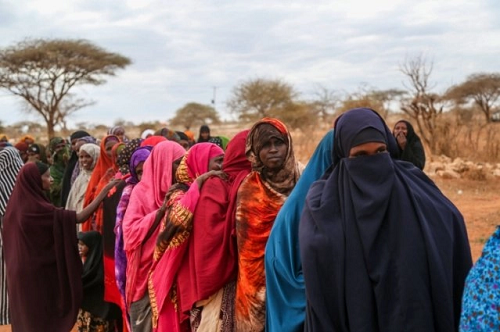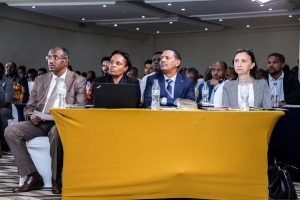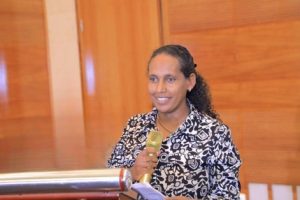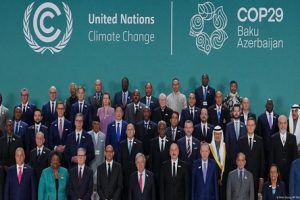
Climate change is a looming global threat that poses its impact against humans, animals and the earth in general. Yet African continent, especially women suffer more from the impact and the unfair response to it, reports on studies indicate.
Across domestic courts in Africa, climate cases have been decided in South Africa, Nigeria and Kenya, with some cases pending in Uganda. However, climate litigation is still fairly new, according to The Conversation.
Climate lawsuits are an important way to access justice. This is particularly true for African women because, as research has shown, climate change affects women more than men in key areas including farming, health, water, access to electricity, migration and conflict.
I research how the law can be applied to cases of climate change, inclusive development, water governance and sustainability. In a recent paper on climate litigation in Nigeria and South Africa, I argue that the structure of legal institutions must be redesigned so that courts are more receptive to women’s climate change claims.
There are three key interventions that would enhance women’s access to climate justice. Firstly, data needs to be collected on women’s and girl’s experiences of climate change impact. Secondly, there needs to be legal aid for women to take up climate lawsuits. And thirdly, gender sensitive climate laws need to passed and then effectively enforced.
If women are able to bring climate action effectively, it will lead to better protection of their rights. This will make them more resilient to climate change. It will also ensure better accountability of those responsible for climate change at various levels, from countries to corporations.
By 2050, an additional 158 million women and girls will experience poverty due to climate change and 236 million women will experience hunger.
Because they lack the resources to bring court cases, women often resort to protests and other informal mechanisms to obtain redress for environmental and other human rights violations, including land grabbing and environmental degradation by governments and companies.
Women’s rights litigation brought by non-governmental organizations on the continent largely focuses on women’s land rights, sexual and reproductive health, and civil and political rights. Climate change affects most of, if not all, these rights but has not yet been directly acknowledged as a cause of action.
In Nigeria, no climate change cases have been brought by women yet though the Climate Change Act 2021 provides for women’s participation in climate governance. In South Africa, women’s rights have been included in climate change policy and women-led non-governmental organizations are driving climate litigation. But this has not yet resulted in a sharp increase in the number of women instituting climate litigation.
Women cannot currently bring court cases against climate-induced harm because they don’t have the evidence or data to prove how climate change is harming them, or whose fault this is. This is not necessarily because the harm is not happening but rather because there is a lack of data being collected on it.
For example, a group of Swiss women over the age of 64 tried to convince the Federal Supreme Court of Switzerland that women were more vulnerable to climate-induced heat waves than men. They used medical evidence showing that more women of this age died of heatstroke than men. But the court was not convinced that the women had suffered enough damage to bring a climate justice lawsuit. The case is now before the European Court of Human Rights.
This shows that without specific data showing how climate change affects women, African women are a long shot from being able to sue for damage caused by climate change.
Women and women-headed households in Africa often live in poverty. This erodes their resilience and access to livelihood resources. In addition, indigent women cannot afford lawyers and other litigation costs.
The right to legal aid in most African legal systems is restricted. In South Africa, legal aid is mainly available for criminal defense or cases involving detention as in the Legal Aid South Africa Act 39 of 2014. Nigeria’s Legal Aid Act 2011 provides legal support for criminal cases and civil matters. There is no specific legal aid that would support women in bringing climate change lawsuits.
Non-governmental organizations have been at the forefront of climate change advocacy and public interest litigation in Africa. They are often able to do this because they have external funding. In South Africa, non-governmental organizations have challenged the approval of coal-fired power stations, mines, or failures to conduct climate change impact assessments.
Nigerian women who sued multinational oil and gas companies for human rights violations were also supported by international non-governmental organizations. And the Centre for Oil Pollution Watch v. Nigerian National Petroleum Corporation case, in which the Nigerian Supreme Court upheld the right to institute legal action for environmental protection, was brought by an NGO on behalf of a community. Most women do not have access to the same kind of funding.
Domestic climate change governance systems need to focus on women’s unique climate vulnerabilities. A proactive judiciary could also play a crucial role in interpreting existing human rights safeguards to advance women’s climate justice.
In particular, there needs to be effective enforcement to avoid inaction or non-implementation of court decisions.
According to UN Foundation there are five ways in which gender inequality and climate change intersect, threatening livelihoods, well-being, and progress for girls and women around the world. The first one is that women face barriers to leaving areas prone to climate change and natural disaster. The World Bank’s 2021 Groundswell report found that climate change could force up to 216 million people to move within their countries by 2050. Migration decision-making in the face of climate risks is informed by gender roles and responsibilities. Women often face increased barriers to leaving disaster-prone areas because of their caregiving obligations, lack of financial assets, and limited rights to land and property. When they do manage to leave, girls and women face higher risks of unemployment, child marriage, human trafficking, and gender-based violence.
Women also face disproportionately high health risks from the effects of climate change. Climate change threatens reproductive and maternal health. Increases in temperature, rainfall, and humidity create favorable conditions for vector-borne diseases, such as malaria, dengue fever, and Zika virus, which can cause miscarriages, premature birth, and anemia among pregnant women. And the February 2022 report from the Intergovernmental Panel on Climate Change (IPCC) found that girls and women are also at higher risk of food insecurity than boys and men, are more likely to die in extreme weather events, and are more likely to experience mental health impacts caused by climate change.
Gender-specific threats are also used to silence female environmental leaders, the foundation indicated. For generations, women across the world have shown resilience and leadership in protecting their communities, land, livelihoods, and natural resources. And yet, female environmental defenders consistently experience disproportionately high rates of gender-based violence as a result of their activism. These assaults range from verbal abuse and harassment based on sex, to intimidation, exclusion, sexual abuse, and rape. All are meant to undermine their voice and leadership in these movements.
Women are excluded from decision-making spaces and climate change negotiations. Despite the unequivocal value of women’s participation in climate movements and their history as environmental defenders, men still fill 67% of climate-related decision-making roles and women’s representation in national and global climate negotiating bodies remains below 30%. Women’s leadership and full participation in the climate movement are essential if we want to design solutions and responses to the climate emergency that address women’s differentiated needs and protect their rights.
Female-led groups do not receive sufficient climate funding. The Generation Equality Action Coalition on Feminist Action for Climate Justice found that just 3% of philanthropic environmental funding supports girls’ and women’s environmental activism. Additionally, female-led organizations, which are often small, have difficulty accessing funding from climate finance providers, which mostly invest in large-scale projects, starting at $10 million. But because of their societally imposed caregiving roles, girls and women have a deep understanding and extensive knowledge of their natural environment and resources. Financing their vision and backing their ideas for sustainability is key for successful climate change adaptation and mitigation, regardless of the dollar value of their projects.
BY STAFF REPORTER
THE ETHIOPIAN HERALD WEDNESDAY 13 MARCH 2024





